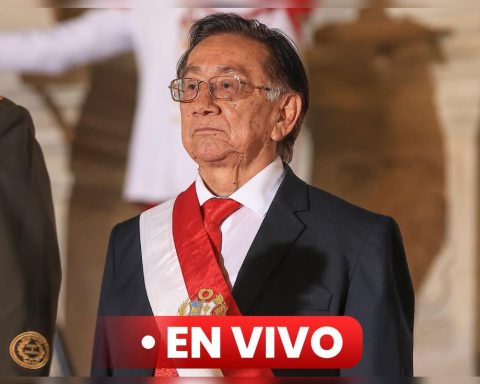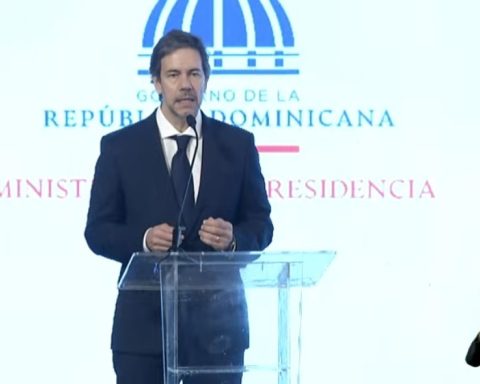The Senate made this Tuesday, at the request of senator lobbyist Raúl Lozano, a minute of silence in tribute to four soldiers assassinated on May 18, 1972 by an MLN-T commando.
The request obtained the affirmative vote of 22 of the 24 present. Nevertheless, received the refusal of two senators from the Front and one who left Parliament early.
legislators Daniel Oleskerof the Socialist Party, and Daniel Caggianoof the Popular Participation Movement, were the two present who opposed and they chose not to raise their arms at the time that the president of the Senate, Beatriz Argimón, considered Lozano’s request. For its part, Laura Melendez -who acted instead of Alejandro Sánchez- He left the room and was not present at the time of the vote.
“I didn’t think it was appropriate. It doesn’t seem to me that every time something happens, a minute of silence is votedSo I didn’t vote for it. But, obviously, I did the minute of silence,” acknowledged Senator Daniel Olesker to The Observer.
The decision, as he justified, had to do with “how one feels at each moment the things one does”. “I did what I felt” he added.
In his half hour prior to the start of the session, Lozano had asked to honor the four young people who died on their 50th anniversary, who, as he explained, emigrated from the “deep interior” to Montevideo in search of a “better future.” For Olesker, with that criterion, it would be necessary to remember “dozens of people” who died at that time.
“The previous half hour of Cabildo Abierto, as it cannot be answered, has, in a high percentage, the objective of defending the government of the dictatorship and defending the military prosecuted. Its half hour is to defend torturers”, insisted the senator frontalist.
consulted by The Observer, Senator Caggiani who downplayed the issue, He said he was not sure what he had voted for this Tuesday: “I do not remember“, answered.
He then argued that this happens “sometimes” when someone is inattentive prior to the start of a session. “Pass sometimes that one is distracted and does not listen. In the previous half hour they talk to you from the problems of a national route to those issues and sometimes one is not so attentive”.
Like Olesker, the legislator respected the minute of silence and rose from his seat. Despite accepting Lozano’s request, he told The Observer that, in any case, “it would have been better” to remember other episodes that occurred during the dictatorship.
“Each legislator can request that the chamber express itself with certain things and we have always been very respectful. It would have been better if from the end of the dictatorship until now they had remembered more, but one remembers what one can”he pointed.
For its part, Meléndez justified his departure at the time of voting pointing out that it was “casual” and without knowing what Lozano was going to ask for later: “I left almost as soon as Lozano began to speak and I arrived to vote the passage of his words to the recipients. There are things that no one is denied,” he added.
And he continued: “Although I do not share the content of what he says or the way it is said, I defend the right to say it. I consider the other a gesture of humanity and I would have accompanied voting”.


















